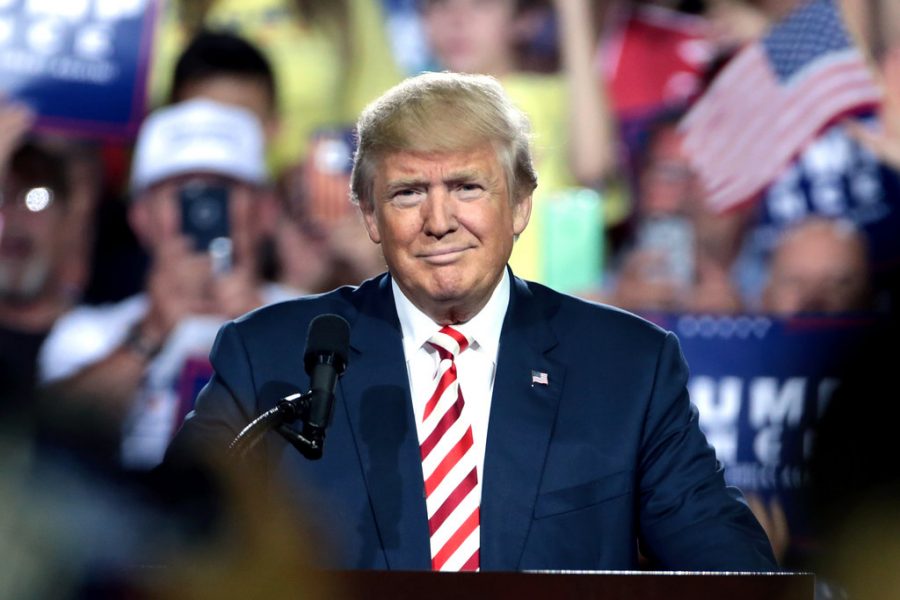Burton: Trump’s Case for Defunding the WHO Is Unfair and Disunifying
June 19, 2020
The coronavirus pandemic has struck each country with differing severity. East Asian countries like Taiwan, Japan and South Korea have done quite well in preventing more cases, while the Americas and Europe are struggling to keep the virus at bay. Though these disparities can be attributed to individual countries’ responses, global efforts to address this crisis have also been disorderly and rife with finger-pointing. The United States, specifically President Trump’s administration, has participated in like fashion. Among other significant acts of protest against global cooperation, Trump’s administration has decided to defund the World Health Organization and end the United States’ relationship with the organization, citing grievances with their response to the virus and bias towards China. As with almost everything Trump does, this decision has received its fair share of criticism, but it also has some supporters. Among them is Utah Senator Mike Lee, who cites similar reasons as Trump for defunding the WHO. Already stoking many global fires, Trump and Lee’s case for defunding the WHO is unfair and damages an already disorganized global effort to stop the spread of COVID-19.
The Proxy Blame Game
Trump’s announcement about defunding the WHO was not a surprise, since the decision is in vein with his anti-globalist tendencies. Keeping this in mind, it seems like Trump made this decision not for the benefit of Americans but rather to maintain his anti-global foreign policy and galvanize his supporters. Among the reasons that Trump has cited for leaving the WHO is the apparent partiality that the agency has shown toward China. With relations between the US and China already strained before the COVID-19 pandemic, President Trump is using the WHO as a proxy to delegitimize China. This action unfairly drags the extra-national organization into a political scuffle. Even if his accusations had a basis in fact, it would still be unhelpful to blame an institution or country for COVID-19. This scapegoating isn’t exclusive to the US, however. Australia’s request for an international investigation into China’s response to COVID-19 earned Australia a series of unwanted tariffs. In both these cases, the accusatory countries ended more disadvantaged than before.
Trump’s Flawed Case against the WHO
To add insult to injury, Trump’s arguments against the WHO are either overwrought or simply not true. With regard to China, Trump criticizes the WHO’s blind acceptance of Chinese information on COVID-19. It’s not unreasonable to say that the WHO could have been more discerning in seeing through misinformation spread by China. However, Trump himself praised China’s “transparency” of the virus earlier on in the year. Trump also claims that the WHO “actively fought” him on enforcing travel restrictions. In reality, the WHO simply suggested to not enact travel restrictions. On January 14, the WHO tweeted that Chinese officials had found no clear evidence that COVID-19 was communicable via human-to-human contact. This statement has since been proven false, but it cannot be taken as confirmation that the WHO believes that COVID-19 is untransmittable. Trump, on the other hand, interprets it differently, even despite a tweet from the WHO on the same day that suggested there was a risk of human-to-human contact.
The Case for Solidarity
Regardless of the origins of the virus or the mistakes the WHO has made, the culture of finger-pointing in Trump’s administration is counterproductive, and the WHO’s accomplishments should not be discounted. Prior to the COVID-19 crisis, the agency provided much-needed medical resources to developing countries around the world. Even more impressive is their near complete eradication of polio, a disease that was devastating for centuries. Additionally, the WHO has been underfunded for years. The funding cuts Trump announced will only make the organization more inefficient, especially since the US is currently its largest funder. The administration should direct its current efforts to help the WHO’s internal inefficiencies. Discontinuing funding to the WHO shows the unwillingness of the US to participate in the world effort against COVID-19 — but in a universally devastating pandemic, there is no reason to be exclusive in our response.
President Trump’s move to leave and defund the WHO is egregious and selfish. Based on flawed interpretations of evidence, his case against the organization is not only unfair but will ultimately cost lives around the world by hurting the global effort against COVID-19.








